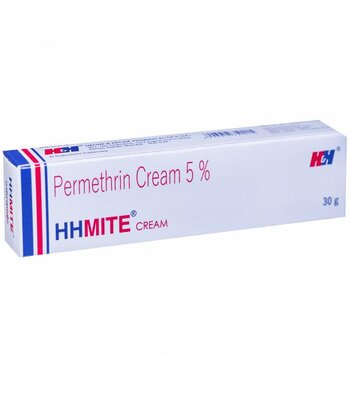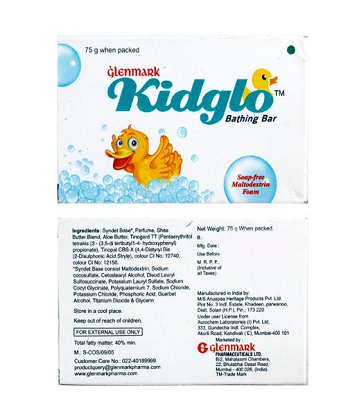Betalol 5mg Tablet 10'S
INR 102.20INR 102.20
Category :
Sub Category :
MG Details :
NEBIVOLOL HYDROCHLORIDE 5 mg
Packing :
10
Mfr by:
Country of Origin:
NA
What BETALOL 5MG is used for?
It is used to treat,
High blood pressure (hypertension)
Elderly patients suffering from mild to moderate heart failure in addition to standard therapy (e.g. with diuretics, digoxin, ACE inhibitors, angiotensin II antagonists)
Talk your doctor before taking this medicine, if you
Are allergic to nebivolol or any of the other ingredients of this medicine
Have liver problems
Had a heart attack
Have missed heart beats
Have or have had asthma or other serious breathing problems
Have a tumour of the adrenal gland called a phaeochromocytoma
Suffer from a slow heart beat
Suffer from low blood pressure or have very poor circulation
Are diabetic
Have an over active thyroid gland
Have a skin condition called psoriasis
Always take this medicine exactly as your doctor has told you
Try to take your tablets at the same time each day
Swallow the tablet with a glass of water
You may take your tablets with or without food
The tablet can be divided into 4 equal doses
Treatment for high blood pressure
Use in adults:
The usual dose is 5 mg of BETALOL 5MG once a day. It usually takes 1 – 2 weeks for the medicine to work but occasionally it may take up to 4 weeks
Elderly:
If you are over 65 years and taking BETALOL 5MG to lower your blood pressure the usual starting dose is 2.5 mg per day. However, your doctor may increase this to 5 mg per day if they feel this is necessary
Patients with kidney disease:
The usual dose is 2.5 mg once a day. However, your doctor may increase your dose to 5 mg per day if required
Patients taking BETALOL 5MG and another medicine to lower your blood pressure
When taken with hydrochlorothiazide the usual daily dose is 5 mg of Nebivolol and 12.5 – 25 mg of hydrochlorothiazide per day
Treatment for heart failure:
Your doctor will start you on a low dose and gradually increase your dose over 1 – 2 weekly intervals until your condition has stabilised. The usual starting dose is 1.25 mg once daily for 1 –2 weeks, this may be increased to 2.5 mg once daily, then to 5 mg once daily and then to 10 mg once daily. The maximum recommended dose is 10 mg once daily. Your doctor will tell you how much to take
Patients with kidney disease
BETALOL 5MG is not recommended for use in patients with severe kidney disease
Patients with liver disease
If you suffer from liver disease do not take BETALOL 5MG
If you take more BETALOL 5MG
Contact your doctor or casualty department immediately. Take the container and any remaining tablets with you
If you forget to take BETALOL 5MG
If you forget to take a dose of BETALOL 5MG do not take a double dose to make up for a forgotten dose. Take the next dose on time. If you miss several doses, contact your doctor
If you stop taking BETALOL 5MG
If you suddenly stop taking BETALOL 5MG you are likely to suffer from side effects, or your illness may get worse. If you need to stop taking this medicine your doctor will reduce your dose slowly over a 2week period
Like all medicines, this medicine can cause side effects, although not everybody gets them.
Tightness of the chest and difficulty in breathing
Serious allergic reactions which may cause a rash, itching, hives or swelling of the face, lips, mouth or throat, which may cause difficulty in swallowing or breathing
Heart failure which may cause shortness of breath
Problems with your eye such as inflammation, dryness of the eye, redness or gritty-irritation of the eyelid which may cause damage to the eye
Mental health problems
Tell your doctor if you are taking, have recently taken or might take any other medicines, including medicines obtained without a prescription or the following.
Medicines to lower your blood pressure such as verapamil, diltiazem, clonidine, guanfacine
Medicines containing floctafenine or sulpiride
Medicines to treat abnormal heart rhythms such as amiodarone, quinidine, hydroquinidine, disopyramide
Medicines to treat depression or other mental problems such as paroxetine, fluoxetine, thioridazine
Barbiturates (used for epilepsy, anxiety or insomnia)
Baclofen (a muscle relaxant)
Amifostine (used in cancer therapy)
Mefloquine (antimalaria drug)
Organic nitrates (to treat chest pain)
Quinidine (used to slow down the heart)
Terbinafine (for fungal or yeast infections)
Bupropion (to help in cessation of smoking)
Chloroquine (for malaria or rheumatoid arthritis)
Levomepromazine (for mental health problems)
Stimulants containing dopamine
Insulin or any oral anti-diabetic medicines
Storage
Keep out of reach of children
Do not use this medicine after the expiry date
Store at room temperature (15-25ºC)
Disclaimer:
The contents of this website are for informational purposes only and not intended to be a substitute for professional medical advice, diagnosis, or treatment. Please seek the advice of a physician or other qualified health provider with any questions you may have regarding a medical condition. Do not disregard professional medical advice or delay in seeking it because of something you have read on this website.












